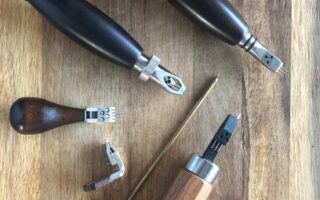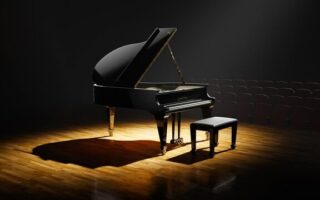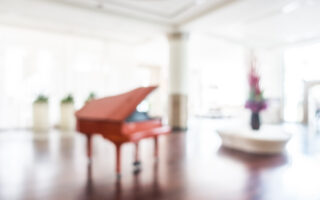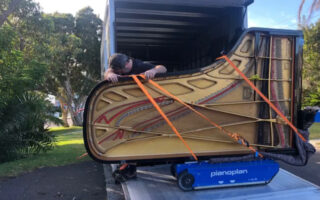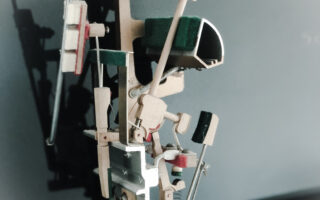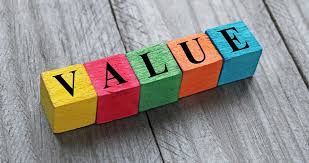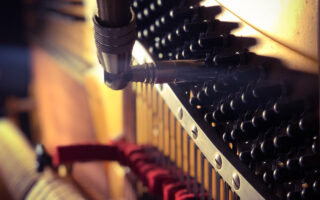How often should i tune my piano?
As a general rule of thumb, it is recommended that you tune your piano every 6 months for best output or at least once a year. However, the frequency of tuning can vary depending on a few factors such as the age of the piano, the climate and humidity levels where the piano is located, and how frequently the piano is played.
For example, if you have a new piano or a piano that has been recently restored, it may need to be tuned more frequently in the first few years of its life as the strings settle and the wood adjusts to its new environment. If the piano is located in a particularly dry or humid area, this can also affect the tuning stability, so it may need to be tuned more often to compensate.
If the piano is played frequently or used for performances, it may also require more frequent tuning to ensure that it is sounding its best.
Ultimately, it’s best to consult with a professional piano tuner who can assess the specific needs of your piano and provide you with a tuning schedule that will help keep your instrument in top condition.
What is piano regulation?
Piano regulation refers to the adjustment of the mechanical components of a piano to ensure that it plays at its best. The mechanical components of a piano include the keys, hammers, dampers, pedals, and other parts that work together to produce sound when the keys are pressed.
Over time, these components can become worn or misaligned, which can affect the touch and tone of the piano. Regulation is the process of adjusting and optimising these mechanical components to ensure that the piano responds properly to the touch of the keys and produces an even and balanced tone across all the keys.
Piano regulation typically involves several different adjustments, including adjusting the key height and key dip, aligning the hammers and dampers, adjusting the pedal mechanisms, and optimizing the overall geometry of the piano action. These adjustments can be quite intricate and require a skilled technician with specialized tools and training.
A well-regulated piano can play more responsively, with greater dynamic range and tonal nuance, and can be a joy to play for both beginners and experienced pianists alike. It is recommended to have a piano regulated by a qualified technician every few years, depending on the frequency of use and the specific needs of the instrument.
What is Piano Voicing?
Piano voicing is the process of adjusting the tonal quality of a piano’s sound by modifying the shape and hardness of the hammers that strike the strings. The goal of voicing is to create a balanced and consistent tone across all the keys, with a full range of tonal colors and dynamics.
Piano hammers are typically made of felt and can become compressed and compacted over time with use, resulting in a hard, bright tone. Voicing involves reshaping the hammers to achieve a more mellow, warm, or bright tone, depending on the desired result.
The process of voicing can involve several different techniques, such as needling, sanding, or hardening the felt, as well as adjusting the hammer shape and weight. The technician may also adjust the piano’s overall tone by altering the string tension or making other modifications to the instrument.
Piano voicing is typically performed by a skilled technician who has specialized training and experience in this area. The process can be time-consuming and requires a delicate touch, as even small changes to the hammer felt can have a significant impact on the piano’s sound.
A well-voiced piano can produce a rich, balanced, and nuanced tone that is ideal for a wide range of musical styles and genres, making it a pleasure to play and listen to. It is recommended to have a piano voiced by a qualified technician every few years, depending on the frequency of use and the specific needs of the instrument.
Can you tune the piano using an electronic device?
Electronic tuning devices, such as electronic tuners or apps, use digital technology to analyze the pitch of the strings and provide a reference for tuning. However, the sound of a piano is complex and involves more than just the pitch of the strings. A skilled piano tuner will take into account factors such as the quality of the harmonics, the overall tone, and the touch responsiveness of the piano when tuning. These factors cannot be accurately measured by an electronic device alone.
Furthermore, every piano is unique, and the tuning process requires a subjective evaluation of the instrument’s sound. A skilled technician uses their ears and experience to determine the best tuning for a particular piano.
In conclusion, while an electronic tuning device can be a useful tool for a piano tuner, it should not be relied on as the sole means of tuning a piano. It is always best to have a qualified technician perform the tuning using a combination of electronic and traditional methods to achieve the best possible result.
Should i inspect before buying a used piano?
Yes, it is highly recommended that you inspect a piano before buying it. A piano is a complex and expensive instrument, and a thorough inspection can help you make an informed decision and avoid any unpleasant surprises down the line.
Here are some things to look for when inspecting a piano:
- Condition of the exterior: Check for any visible signs of damage or wear and tear, such as scratches, dents, or chips. Make sure that the piano’s finish is consistent and has not faded or discolored.
- Condition of the interior: Inspect the strings, hammers, and other internal components for signs of wear or damage. Look for rust or corrosion on the strings, and check that the hammers are not worn down or misshapen.
- Tuning stability: Play each key and listen carefully to the pitch. If the piano is out of tune, it may indicate that it has not been well-maintained or that there are underlying issues with the instrument.
- Touch responsiveness: Play each key and evaluate the touch responsiveness. The keys should feel smooth and even, and the action should be responsive and consistent across all the keys.
- Pedals: Test each pedal and make sure that they are functioning properly.
- Age and history: Ask the seller about the age and history of the piano, including any repairs or maintenance that have been done in the past.
If you are not confident in your ability to inspect a piano, it is recommended that you have a qualified technician or piano tuner perform a more thorough evaluation before making a purchase. We provide a professional inspection with a detailed assessment of the piano’s condition and help you make an informed decision.
Where should I locate the piano in my house?
When choosing a location for your piano in your house, it is important to consider several factors to ensure that it is safe, comfortable to play, and well-maintained. Here are some things to keep in mind:
- Temperature and humidity: Pianos are sensitive to changes in temperature and humidity, which can cause the wood and other components to expand or contract, affecting the tuning and overall sound of the instrument. It is best to place the piano in a room that is climate-controlled and away from any direct sources of heat or moisture, such as radiators or windows.
- Placement: The piano should be placed in a location where it is safe and stable, away from any high-traffic areas or hazards that could damage the instrument. It is also important to consider the acoustics of the room, as a room with good sound quality can enhance the tone and resonance of the piano.
- Lighting: Proper lighting is essential for playing the piano, as it can affect your visibility of the keys and sheet music. It is best to place the piano in a well-lit area, either with natural light or artificial light.
- Accessibility: Make sure that the piano is easily accessible for playing and maintenance. Avoid placing it in a room that requires navigating stairs or narrow hallways, and ensure that there is enough room around the piano for a bench and for a technician to work on the instrument.
- Sound isolation: Pianos can produce a significant amount of sound, which can disturb other members of the household or neighbors. If possible, choose a location that is away from shared walls or living spaces, or consider investing in sound insulation materials.
Overall, the best location for your piano will depend on your individual circumstances and preferences. Take the time to carefully evaluate your options and consult with a professional if needed to ensure that your piano is in the best possible location for your needs.
Does a digital keyboard with weighted keys and a piano feel the same?
While digital keyboards with weighted keys can simulate the feel of playing an acoustic piano to some extent, they do not feel exactly the same as a real piano. Here are some of the key differences:
- Action: Acoustic pianos have a unique action that is difficult to replicate in a digital keyboard. The action refers to the mechanism that transfers the motion of your fingers to the hammers that strike the strings, and it involves a complex system of levers, springs, and other components. While digital keyboards can simulate the weight of the keys, they cannot fully replicate the complexity of an acoustic piano action.
- Sound: Acoustic pianos produce sound through the vibration of strings, which creates a rich, complex tone that is difficult to reproduce in a digital keyboard. While digital keyboards can simulate different types of piano sound through sound samples, they do not have the same depth and nuance as an acoustic piano.
- Touch sensitivity: Acoustic pianos are touch-sensitive, which means that the volume and tone of each note can vary depending on the force with which you strike the keys. While digital keyboards can simulate this touch sensitivity to some extent, they do not have the same level of nuance and variation as an acoustic piano.
Overall, while digital keyboards with weighted keys and a piano feel can be a good alternative to an acoustic piano in some circumstances, they cannot fully replicate the experience of playing a real piano. If you are serious about learning the piano, it is generally recommended that you learn on an acoustic piano, as this will provide you with the most authentic and rewarding playing experience.


